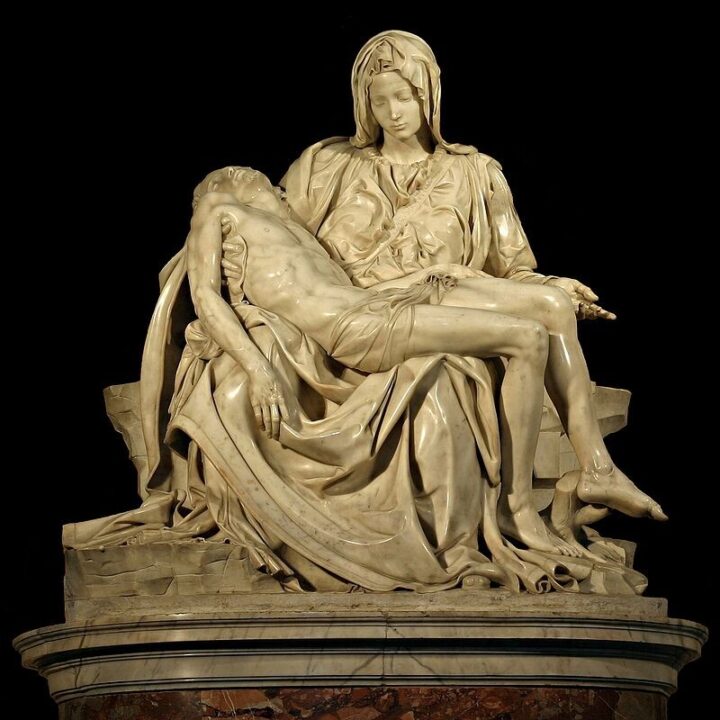This paper aims to discuss the subject matter of corporate governance in the body of Christ. This discussion is critical at this point in the body of Christ, especially in Nigeria, in view of the leadership crisis the nation is experiencing. The church, as the light of the world, the ground and pillar of truth has a lot to teach and demonstrate about leadership.
For simplicity, the questions it desires to answer will be first presented and the rest of the paper will seek to answer them in no order; other related questions will be presented in the course of the paper. The questions are enumerated to help identification in discussing the answers provided.
Context
The discussion of corporate governance could be seen in certain quarters as predicated on the absence of trust; this posture, however, is incorrect as most successful corporate governance practices are those instituted by leadership. This corporate governance deliberations, therefore, proceeds from this premise – a deliberate attempt by leadership to do the right thing. A premise, other than this could portray and/or suggest a state of rebellion.
Questions:
- What should be the organizational structure of the New Testament Church?
- How should the different tasks be distributed?
- How should the different departments relate with each other?
- Is there a model for such a structure?
- What are the functions (tasks) of the New Testament Church?
- What is Corporate Governance?
- Is there biblical basis to enshrine Corporate Governance in the local church?
Introduction
Contemporary Definition of Corporate Governance
The subject of Corporate Governance refers to the framework of rules, relationships, systems and processes within and by which authority is exercised and controlled within an organisation.
It encompasses the mechanisms by which organisation and those in control are held to account.
In a nutshell, it has two elements:
- Rules, Systems and Processes for Exercising Authority
- Mechanisms for Accountability
Questions
- Should leadership in the Church have rules and systems for exercising authority?
- Should there be accountability structures?
Answers can be found in the following passages of Scripture:
- The Oracle of Kingship – recognizes the equality of the people of God, particularly with respect to the conscious humility of their leadership – so that his heart be not lifted up above his brethren (Deut 17: 14-20).
- The Doctrine of Service (John 13; Mark 10:35-45) recognizes the servant posture of leadership; to serve and not to be served.
- The Doctrine of Agreement – recognizes the need for homogeneity of will in the exercising of Church power. (Math 18:20, 1 Cor 14:29.
- The practice of the Saints – the republican Apostolic approach exemplifies these understanding. (Acts 15).
- The Above-Board Dispensation of the Apostles – in dealing with the complains of the Hellenists portray these understanding. They had complained about their widows and were told to appoint for themselves a board of Deacons. Note that the apostles’ teachings ensured they had men that met the qualifications, but it is the people that chose the men. (Acts 6:1-7)
So, we will proceed on the premise that there should be accountability structures in the Church, and that the presence of these structures does not imply the lack of trust; however, more emphasis will be made on the pillars of this premise.
It is important that the reader notes that beyond the organizational structures that make for corporate governance, is the heart for such. In fact, it is the opinion of the authors that no corporate governance intervention will be successful on the long term if the posture of the heart and the affections of the mind are not first addressed.
The Posture of the Heart
The Oracle of Kingship
In Deut 17, we see that indeed all leadership possess the capacity to multiply riches for itself and usually does; yet, the best of civilizations (judged by the well-being of the citizens) is seen when this does not happen; the best of Church history occurred in the era where her leadership refused (intentionally) not to multiply riches; the worst of church history occurred when the church got lost with economic and political power.
The oracle of Kingship is wise not because it makes the leader humble but more importantly, because it makes the people humble. Followers tend to outdo their leaders and part of Africa’s problem is embedded in the character of her religious leadership. Note also, from the Words of Jesus to the Jews with respect to the Pharisees and Scribes in Mathews 23:1-12; a situation can arise where doctrine is not the issue but rather, lifestyle.
The Oracle of Kingship is more about the heart of the leader than anything else; the leadership must not see itself as better than the followers in kind.
The Doctrine of Service
Leadership exists to serve the body; the service of the body is not only in word and doctrine but in socio-economic welfare as seen with the early church – “that none lacked” was a big part of the focus; the subject of the service was not just in the delivery of the Word but very much in the meeting of the needs of the body. Nearly all mentions of giving and sacrifice in the New testament was to meet the need of the saints. Again, the practice of this has political implications; the early Church saw dramatic giving; not because of coercion but because it was one for another – all for one, one for all.
The prophecy of Jesus about the sheep and the goats offer excellent review material on this subject (Math 25:33-46).
The Doctrine of Agreement
Leadership authority is best exercised in agreement and agreement requires diversity and humility; hence, the early church had a council of elders and apostles. The Roman Civilization had a wonderful mixture of power deployment where Ceaser had to agree with the Senate; we also see such in the Trinity; the Father loves the Son and gives him everything; the Son loves the Father and does only His will; the Spirit loves the Son and the Father and will not speak of Himself. The three agree; unity in diversity. Uni-varsity.
The Church is not borrowing division of power and the principle of agreement in diversity from the world; it is the nature of reality; deriving its bearing from the First Cause.
The Above Board Dispensation
The decision of the Apostles to ask for the appointment of leaders was to give the Church leaders ownership in the disbursement of their gifts. “We are not masters of your faith; we are helpers of your joy” (2 Cor 1:24). Leadership is a tool for the edification of the Saints and the best of its work is seen in the independence of the saints, not in their captivity. Leaders must see to the maturity of the Saints, and nothing matures the saint as responsibility.
Summary
The Premise of Corporate Governance in the Church is founded on the following:
A non-materialistic leadership committed to the spiritual and material blessing of the led, deployed in a manner that depicts sufficient transparency to avoid accusation, with structures for consensus building between membership and the leadership.
We find this in the lifestyle of Apostle Paul who took up vocation not just because he needed the money; he wanted to be above board. He knew that these things mattered.
The functions of the Church
- Spiritual Edification – Word and Prayer
- Material Edification – ministry to the widows, the poor and the less privileged.
Current Assessment
A current assessment of most church expenses will reveal a trend like this
- 85% to Overhead (rent, equipment, purchases)
- 5% to wages, honorarium
- 5% to social services and welfare
Sometimes, there are no other evangelical platforms outside the four corners of the Church.
There are reasons for this, however, the major outcomes are that there are a lot of people complaining like they did in the early church; the Church appears not to be solving their social problems.
The reason why it is not solving their social problem is simply because her leaders are not accountable to them.
A survey to examine what individuals that give to their church really think the church should do with the resources given will really help. It is the belief of the author that there is a great disparity between what church finances are used for and what those that give them think they should be used for.
Also, the over-monetization of “giving” can jeopardize the growth of other relatively low-cash requiring ministries that need the ordination and support of the local church to flourish (e.g. Prison Ministries, Education Services, Psychological Care, Elderly Care etc.). For these, the major requirement are individuals committed to the sacrificial giving of their time with little or no compensation.
In practice though; a truly representative council appointed by membership (to avoid sycophancy) should represent the view of the whole; and it is this representative council that should determine expenditure and regular reports made available to her membership. It is important to note that this is not different from what we expect of civil authorities and the Church of God ought to be the ground and pillar of truth; the absence of which reflects the truth that what we expect of civil authorities is a cultural shift of which the church must lead.
Can Church Members Be Trusted to Partake of the Budgetary Process?
The answer to this would depend on our perspective of who a believer is or who a believer should be? A body of believers or their chosen representatives are more than qualified to partake of budgetary processes and to make key decisions that pertain to the growth and flourishing of the body in keeping with the spirit of “I do not call you servants, for servants do not know what their masters do”.
Development of representative members full of the Holy Spirit and Wisdom is the call of the fivefold Ministry and their absence is an indictment and not an excuse for the lack of corporate governance.
Note
We live in a consumerist society; where costlier is better; new is good and the people of God have somehow fallen for this, as the rest of the world has. It is as if we have allowed the world to dictate our prayer points; our targets; at the end of the day, we have a money transfer where cash flows regularly from the Church to the world; rather than the other way around. It is so because the world is winning the culture war. Whoever dictates the culture, dictates the flow of resources. The distinction should have been easy and is still is easy – ideally, the Church’s focus is men (fishers of men), the world’s focus is things (fishers of fish).
The authors believe that this culture of consumerism is at the heart of most of the challenges of corporate governance; it breeds a cycle of neediness.
Lessons from Church History
When the Pope was selling indulgences to build Cathedrals (the House of the Lord); it is not exactly right that the house of the Lord was exactly what the people wanted or needed; they, the masses are the House of the Lord. We need to be so focused on building the people that we won’t know when the structures pop up under us.
So, in a nutshell, the absence of corporate governance at best reinforces the separation of clergy and laity; where laity give to clergy to do the work of God; whereas it shouldn’t be that way. The result is either dark ages or it is atheism. History has shown that leadership are not wholly without blame in scenarios of civil revolt; particularly when those revolts revolve around material resources.
Harmonizing the Two Works – Accountability
As seen with the early Church; the Apostles didn’t seek doctrinal validation from the people – though they sought it from one another, the Fivefold Ministry must have peer-review structures.
The social aspect of the work should be done very transparently and is the bulk of the work that requires money.
Money and the Work of God
In a nutshell, it behooves on leadership not to fall for the trappings of materialism (big structures) at the expense of the people. A well-engaged membership led by accountable leaders will give money; as much as is required to do the work of God; it is their work. Also, good leadership recognizes that the entire Church is the Body of Christ and not fall for the Lutheran dictum of “this is my body”; hence, the work of God is much beyond the congregation itself.
The result is partnership; in the correct sense, the membership is not partnering with the pastor; they are partnering with themselves to reach the world. The right approach to these matters provide the followership with a very good understanding of how life should be lived and this affects every other aspect of their lives. One of the factors that contribute to the apparent madness on our streets is because people simply do not see enough love in places of worship; they see God as a tool to get blessings and unfortunately the gospel of faith can be erroneously understood this way, simply because it was inadvertently taught that way.
We are not just people of faith; we are people of love; the posture of faith is redemption not cars or things.
A Church focused on reaching the world in love, focuses on developing her members to gain the spiritual and material resources to do that work effectively. It is at the center of the action happening in the society. To be able to do this effectively, resource (spiritual and physical) management and deployment is key.
How to Organize the Body
A lot is lost when church leadership is centered around only the teachers of the Word; there is more to the work than that; a lot more can be done when leadership supports other non-Word ministries to thrive and the accountable body throws resources at this kind of work.
Leadership should focus on supporting the Ministries of the Laymen; they should be taught to live Christ in their work and must not be made to think that they “give to God” only when they give to the Church; their 8am to 5pm every weekday is as sacred as their Sundays.
A local church, for example should start “Society for Girl-Child Education”; “Society for Artisanal Workers Development” etc. according to the needs and callings of her membership. These engagements should be seen as a powerful Ministry of the Word; it wasn’t just the words of Jesus that got people; it was more of His Acts. Miracles and Healings will happen when we unleash and support our people to do the work of God in such Societies.
It is important to note that it is such societies that brought Christianity to us in Africa and the much-needed social amenities.
On Motivation and Accountability for Gifts and Offerings
For speed, the points are enumerated.
- Transparency should be instituted at all levels of leadership simply to be above board.
- Remuneration for leadership should be reasonable and in compliance with “so that his heart be not exalted above his brethren”.
- Leadership should intentionally be humble; there is great wisdom in that. Not because of lack of capacity but because of it.
- Leadership should let the people contribute to decisions on how funds are deployed.
- Regular reporting structures are part and parcel of corporate governance.
Examples of Accountability Structures
- Leadership Councils; the use of a senate-like Council or board as the highest decision-making organ of an organisation is important in avoiding individual excesses, of which we are all vulnerable when left unchecked. This structure also protects the larger body from offence, as most times, issues that may offend are quickly resolved within the council. As seen with the Council of Apostles and Elders at Jerusalem, doctrinal matters form a key element of the functions of that council. Wisdom can also be gleaned from the Protestant reformation, which successfully enthroned the authority of Scriptures (rather than church traditions) as the principal source of truth; hence, the powers of the Council must derive from Scriptures alone, in keeping with the spirit of “we are not masters of your faith, but helpers of your joy”.
- Budget/Budget Review Meetings – these are annual, semi-annual or quarterly meetings where the Church (all members) deliberate on what it wants to do with the resources of God committed to it, it should be noted that if Shareholders of earthly companies can make inputs on their budget at the annual general meetings and Government Executives seek budget approvals, leadership in the house of God should be much nobler. The people of the Lord, are holy. The Holy Spirit, if we ask Him, can inform us what to focus on per quarter, or per annum. At the review meetings, the progress of the work is explained and discussed; with inputs made from membership. Note that since the Church’s focus is her membership; there is nothing (be it building projects, giving, etc.) that should be deemed too discreet for her; however, in certain cases, it might be best to limit participation to elected representatives.
- Appointments: for the day-to-day operations; the people themselves should appoint leaders to represent them in these matters; these appointments should be reviewed regularly to avoid nepotism and sycophancy. It is important to note that these structures are fundamental pillars of the early Church; they were indeed essential pillars borne not out of tradition, but more from an understanding of the full counsel of God, of the nature of men and the whiles of the enemy.
Advantages of this Approach
- This will quell the current giving and tithing controversy in many quarters; believers should not just give their tithe and walk away (God wants the entirety of their lives); they should be part and parcel of His work. When people get involved with God’s work, they will give more than 10%.
- This will also create the right kind of citizens – the salt of the earth – the non-inclusiveness of followership in leadership is the major limit to Africa’s development and the prevailing Church governance structure in many quarters reinforces that; if Church leadership (the holiest) are accountable to their people, the people will force their earthly leaders to be accountable. Let thy will be done on earth, as it is in heaven.
- Also, if Church leaders present a humble outlook in accordance with the Oracle of Kingship, it will catalyze the emergence of servant leadership with the hallmark that it utilizes the very little resources we have, to do much more. This is important because part of the biggest challenge of consumerism is that it wastes the opportunities and is in a perpetual cycle of neediness; from such, no prayers can save.
- A well run governance structure in church will impact positively on the society at large. History has taught that the most effective governance structures governments have adopted world over, originated from the church.
Conclusion
A lot rises and falls on leadership; and in the Body of Christ, this responsibility becomes even more significant. We must all strive to get the noble commendation at the end of days. We can do so by taking heed to ourselves and to the flock that is committed to us.
















